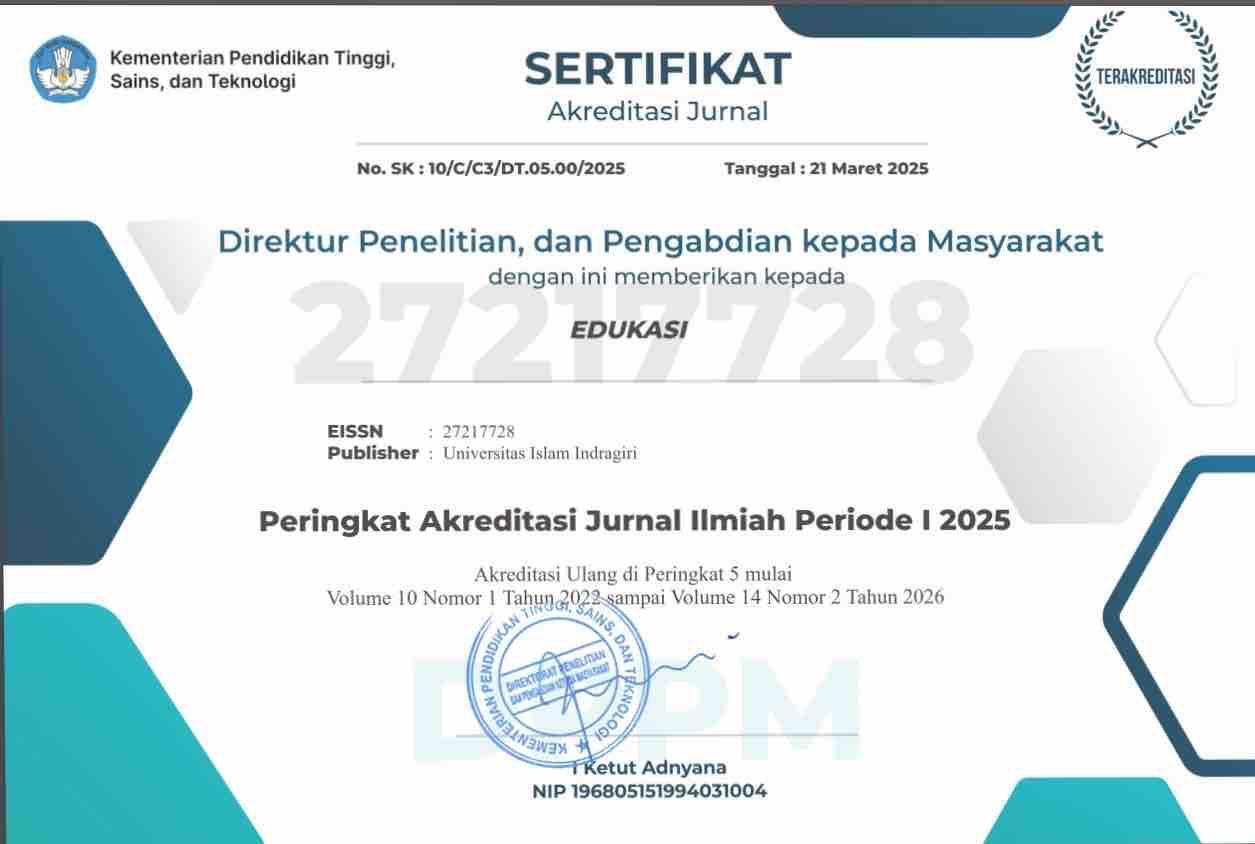Hubungan Filsafat Ilmu Terhadap Perkembangan Pendidikan
DOI:
https://doi.org/10.61672/judek.v10i1.1743Keywords:
Filsafat ilmu dan PendidikanAbstract
The philosophy of science is understood as a branch of philosophy that emerged in the late 19th century or entered the 20th. The development of science and the development of education reached their peak in the nineteenth century at the time of August Comte and his successors, who tended to measure the truth of science on the scale of the philosophical flow based on something real, making science more and more independent of the basic assumptions of its philosophies. The philosophy of science also tries to introduce science in its entirety. In essence, the philosophy of science can stand in the middle of the branch of science with various rules and guidelines for the application of educational principles. As for the relationship of the philosophy of science to the development of education, it is a human effort to understand the concept and method of a discipline of science. Changes and developments have brought philosophies into a configuration by showing how science evolves with each discipline.
Downloads
References
Carnap, R. (2012). An Introduction to the Philosophy of Science. New
York: Dover Publication, Inc.
Bakhtiar, A. (2012). Filsafat Ilmu. Jakarta: PT Raja Grafindo Persada. Carnap, R. (2012). An Introduction to the Philosophy of Science. New
York: Dover Publication, Inc.
French, S., & McKenzie, K. (2016). Rethinking outside the toolbox: Reflecting again on the relationship between philosophy of science and metaphysics. Poznan Studies in the Philosophy of the Sciences and the Humanities,104(3),25–54. https://doi.org/10.1163/9789004310827_003
Fukuda, K. (2020). Science, technology and innovation ecosystem transformation toward society 5.0. International Journal of ProductionEconomics,220(2),07129.https://doi.org/10.1016/j.ijpe.2019.07.033
Habibah, S. (2017). Implikasi Filsafat Ilmu terhadap Perkembangan Ilmu Pengetahuan dan Teknologi. DAR EL-ILMI : Jurnal Studi Keagamaan, Pendidikan Dan Humaniora, 4(1), 166–180. http://e- jurnal.unisda.ac.id/index.php/dar/article/view/693
Harjanto, R., & Lasiyo. (2018). Filsafat Kehidupan dalam Perspektif Tao Te Ching Lao Tsu. Jakarta: Obor.
Hidayatullah, S. (2006). Relasi Filsafat dan Agama (Perspektif Islam).JurnalFilsafat,40(2),128–148. https://doi.org/10.22146/jf.31271
Ibda, H. (2019). Filsafat Umum Zaman Now. Pati: CV. Kataba Group.
Jalaludin. (2013). Filsafat Ilmu Pengetahuan. Jakarta: PT. Rajagrafindo
Persada.
Juhaya. (2003). Aliran-Aliran Filsafat Dan Etika. Jakarta: Prenada Media Group.
Kirom, S. (2011). Filsafat Ilmu dan Arah Pengembangan Pancasila: Relevansinya Dalam Mengatasi Persoalan Kebangsaan. Jurnal Filsafat, 21(2), 99–118. https://doi.org/10.22146/jf.3111
Komara, E. (2012). Filsafat Ilmu dan Metodologi Penelitian. Bandung: PT Refika Aditama.
Ladyman, J. (2012). Understanding philosophy of science (Routledge (ed.)). https://doi.org/10.4324/9780203463680
Latif, M. (2014). Orientasi Ke Arah Pemahaman Filsafat Ilmu. Jakarta: Prenadamedia Group.
Levine, D. (2018). Auguste Comte and Positivism: The Essential Writings. Contemporary Sociology: A Journal of Reviews, 47(6), 677–688. https://doi.org/10.1177/0094306118805421c
Machamer, P. (2008). A Brief Historical Introduction to the Philosophy of Science. Cambridge: Cambridge University Press. https://doi.org/10.1002/9780470756614















